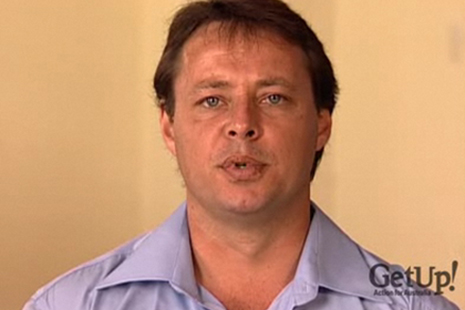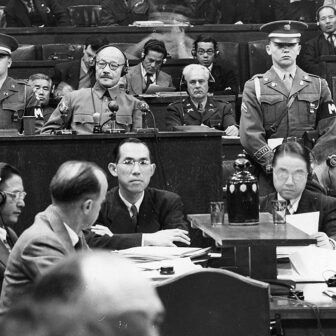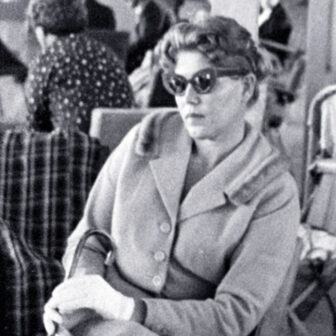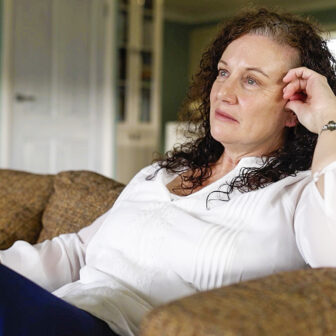AUSTRALIA HAS HEARD David Hicks’s voice for the first time. For years, through a few ubiquitous images and, more powerfully, the impassioned advocacy of his father Terry, Hicks was a man at the centre of a major public debate in this country. But he was an enigma.
Hearing Hicks speak doesn’t tell us much more about him – but it does remind us that locked up in a cell for all those years was an Australian citizen, not simply a political prop for use by advocates of either side of the debate on the “war on terror.”
Hicks has been quiet since his release from prison in South Australia, where he served the remainder of the sentence imposed by the United States Military Commission. That system is still of dubious legality and incoming president, Barack Obama, has announced plans to replace it as part of his commitment to shutting Guantanamo Bay.
The twelve month “gag order” imposed on Hicks was never an enforceable restraint on him speaking out and yet, despite frenzied indignation that he may seek to profit by telling his story, Hicks chose to maintain his silence. His behaviour was that of a man keen to oblige the authorities and eager to resume a normal life.
That appears to still be his abiding wish. In his brief statement direct to camera and available through the website of the community advocacy organisation, GetUp!, Hicks made it clear he was only raising his head up over the parapet in order to plead for the removal of the remaining restrictions which prevent him from rebuilding his life.
The Commonwealth control order imposed on Hicks for the last year was due to expire in late December. The current order restricts Hicks’s freedom to leave his house at various times of the day or use the telephone or internet. He is also required to report to police at a local station several times a week. These conditions are certainly nowhere near as harsh as those available under Division 104 of the Criminal Code for control orders but it is not hard to imagine their disruptive effect.
The AFP was quick to announce yesterday afternoon that it will not be seeking the consent of the Commonwealth attorney-general for an application for a new control order to be issued by a federal court. That may always have been the case, but if not, then Hicks’s strategy of pre-emptively raising the issue was a smart move.
Even so, his speaking out should serve to remind Australians that we live in a country where it is possible to substantially deprive people of liberties they take for granted even when no new, or even any, criminal offence has been committed.
Australia’s use of control orders has always been at odds with what occurs in the United Kingdom. There, control orders are only used for persons the authorities do not feel they have sufficient evidence to prosecute. A big factor in this is that British courts – unlike their Australian counterparts – do not admit evidence of intercepted telecommunications in criminal trials. Without recourse to such evidence, putting terror suspects through the traditional criminal justice system is occasionally impossible and orders are issued as a solution.
That is certainly not uncontroversial, but at least the British judiciary have been able to ameliorate the worst excesses of the orders to some extent through application of the principles underlying the guarantees of the European Charter of Human Rights.
In Australia, where no similar evidential impediment to a prosecution exists, control orders have found an unexpected use as post-trial measures to retain control over individuals now free. Melbourne’s Jack Thomas, for example, was slapped with a control order after his conviction on terrorism crimes was first quashed on appeal. Similarly Hicks was made the subject of an order once he became, at least technically, a “free man” again.
Control orders remain an extraordinary addition to Australia’s legal system. But as the GetUp! campaign reminds us, they are far from being alone. In the last few years, the federal government introduced all sorts of novel laws which strengthen the powers of the state against individuals. Among these are the powers of extended pre-charge detention that led to Mohamed Haneef’s ordeal in a Queensland prison last year, which is a main focus of the Clarke Inquiry into that affair. But there are also the new laws of sedition, preventative detention orders and crimes of association.
Many of these measures were of dubious necessity when introduced. The impending expiry of Australia’s last control order – of which only two were ever issued – is demonstrative of why they are not needed in Australia’s security environment. Laws as unusual and invasive of individual liberties as these should not be left sitting on the statute books. When extraordinary measures are not needed they should not be allowed to normalise but instead repealed.
Several parliamentary and independent inquiries have already reported on the many flaws and dangers inherent in the larger body of anti-terrorism laws and made constructive recommendations for their improvement. With the Clarke Inquiry report now having been delivered to the attorney-general, the time has come for the new federal government to get on with the business of fixing our national security laws. •




